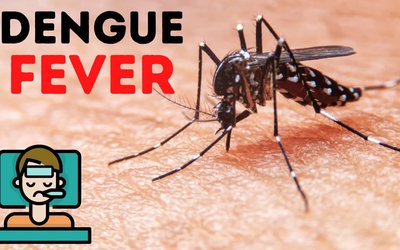More on Health





Bardiya district in mid-western region became the 24th district in the country to be declared free of open defecation culminating the 16th National Sanitation Action Week that this year focussed on improving hygiene and sanitation during the post-disaster period.
“While the country is in a critical juncture, combating enormous challenges in the aftermath of the earthquake, we also need to make sure that we do not lose the momentum gathered by the Sanitation Social Movement that the Government, UNICEF and other partners have worked on since 2008,” said Tomoo Hozumi, Representative of UNICEF Nepal. “It was through this movement that the country was closing in on the target of attaining universal sanitation coverage by 2017, which would have ensured a healthy future for the children of Nepal.”
Before the earthquake, nearly one third of the country’s 75 districts, 1,700 Village Development Committees and 33,000 school catchment areas had been declared free of open defecation, thereby positively impacting the lives of the people living in those areas. However, many of the toilets and water supply systems built under this movement in the villages in central and eastern regions were destroyed following the earthquakes.
The Water, Sanitation and Hygiene (WASH) section of the Post Disaster Needs Assessment reports that a total of 1,570 water supply systems have sustained major damages and 3,663 were partially damaged in the 14 most affected districts. Similarly 220,000 toilets were rendered unusable because of damages. The Assessment outlines that the cost of restoring WASH sector to pre-earthquake status in the 14 severely affected districts amounts to US$ 100 million. If the recovery/reconstruction needs of WASH facilities of health and education institutions are added, the total costs will increase even more.
According to a press release issued by UNICEF, getting the damaged WASH infrastructure back to pre-earthquake status in several of these districts, villages and schools has been challenging as people are struggling and priorities go to food and shelter over sanitation and hygiene.
“People in Bhaktapur, Kavre and Sindhupalchowk districts - which were particularly badly affected by the earthquakes this time - had either already attained open defecation free (ODF) status, were on the verge of doing so. Now, people who have been enthusiastic about sanitation promotion in their community are displaced to camps and are waiting for relief items and food to come their way,” said Hozumi. “Our work through emergency response as well as regular development programs is to try to bring back normalcy into the lives of these communities as soon as possible, and to bring the sanitation social movement back on track.”
UNICEF is trying to restore its regular development program through sanitation campaigns while continuing with disaster response initiatives in the 14 most affected districts of Nepal. It leads the national WASH cluster which is extended to two sub-national hubs at Gorkha and Sindhupalchowk in order to scale up coordination, relief and early recovery efforts.
UNICEF’s earthquake response aims to serve 840,000 people with water supply, sanitation and hygiene facilities. These include nearly 336,000 children. To meet the target UNICEF is working closely with the government and non-government partners to repair water systems, provide water purification, construct emergency latrines and hand washing facilities and distribute hygiene kits.
To date UNICEF’s earthquake response has reached 295,441 people in the severely affected districts with access to a sufficient quantity of water of appropriate quality for drinking, cooking and personal hygiene. In addition, 259,620 people have been reached with hygiene education messages and interpersonal communication.
“While we have intensified emergency response in the 14 hardest hit districts, we have now also began continuing our regular development so that the children in far western region of Nepal continue to get benefited,” Mr. Hozumi said, “In doing so, we will try to use the lessons that we have learned from the earthquake and promote facilities that are resistant to disasters like earthquake, floods and landslides.”
UNICEF is also bracing itself to face the monsoon season that is just a week away with contingency plans that provisions, amongst other things, pre-positioning of WASH supply items for 45,000 households. UNICEF is also preparing to provide WASH relief items in the earthquake affected districts for 112,000 families to address possible diarrhoeal and cholera outbreaks.
“The recent landslides in eastern Nepal that took away many lives and property, is an indication of what havoc the deadly mixture of quakes and cloudbursts in the days ahead could wreak on these already fragile mountains,” said Hozumi. “We are therefore doubling our efforts to ensure that people living there, especially the vulnerable children, will at least be safe from disease.”








